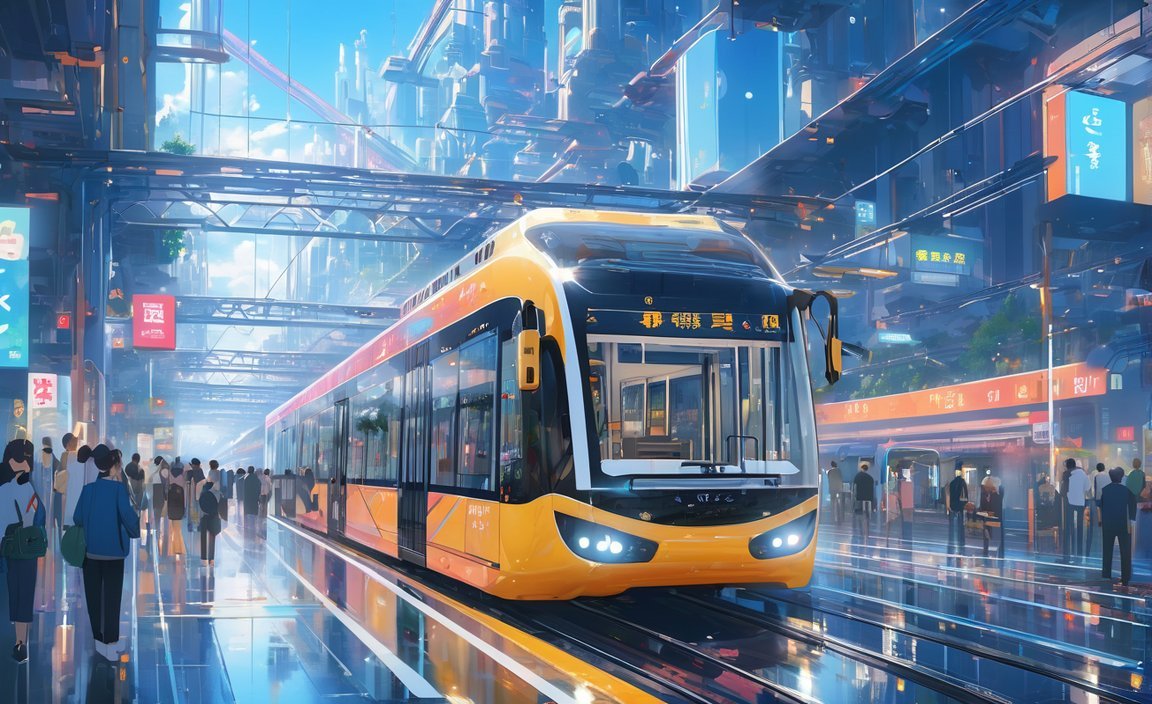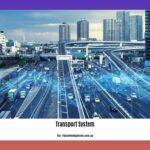Exploring the Pros and Cons of Intelligent Transport Systems: In today’s technologically advanced era, the implementation and utilization of intelligent transport systems have revolutionized the way we navigate our modern transportation networks. From traffic management to improved safety measures, intelligent transport systems offer a myriad of benefits for both commuters and transportation agencies alike. However, as with any innovation, there are also potential drawbacks that need to be taken into consideration. In this article, we will delve into the advantages and disadvantages of intelligent transport systems, shedding light on their real-world applications and examining the impact they have on our daily lives.
Key Takeaways:
- Intelligent transport systems (ITS) aim to provide innovative services for different modes of transport and traffic management to enhance efficiency and safety.
- ITS technology can improve the efficiency, safety, and mobility of road transport by increasing road capacity and reducing journey times.
- Smart transportation technology optimizes routes, reduces congestion, and improves traffic flow, leading to enhanced resource utilization and maximizing the use of existing infrastructure.
- It is crucial to consider the social impact of transport systems to avoid negative consequences such as economic stagnation, lack of social mobility, poor health, injuries, and fatalities.
- Intelligent transport systems have the potential to revolutionize transportation networks by leveraging technology and data analysis to enhance efficiency, safety, and sustainability.
- Careful consideration of social impact is necessary to ensure that intelligent transport systems benefit all members of society.
Advantages and Disadvantages of Intelligent Transport Systems

Intelligent Transport Systems (ITS) have emerged as a promising solution to improve the efficiency and safety of transportation networks. By leveraging advanced technologies and data analysis, these systems offer a range of benefits. However, like any other innovation, they also come with certain drawbacks that need to be carefully considered.
Advantages of Intelligent Transport Systems
-
Improved Efficiency and Safety: Intelligent Transport Systems utilize technologies like sensors, cameras, and real-time data analysis to monitor traffic conditions and manage transportation systems effectively. By optimizing routes, coordinating traffic signals, and providing real-time information to drivers, these systems can greatly reduce congestion, improve traffic flow, and enhance overall travel efficiency.
-
Enhanced Safety: With the ability to monitor and analyze transportation networks in real-time, ITS can identify potential safety hazards, such as accidents or dangerous road conditions, and promptly alert authorities and drivers. This proactive approach can help prevent accidents, reduce response times of emergency services, and ultimately save lives.
-
Resource Utilization: Smart transportation technology enables cities to make better use of their existing transportation infrastructure. By optimizing routes and minimizing congestion, ITS allows for more efficient resource allocation, resulting in reduced fuel consumption, lower greenhouse gas emissions, and cost savings for both individuals and the government.
-
Improved Public Transportation: Intelligent Transport Systems have the potential to revolutionize public transportation by making it more efficient, reliable, and user-friendly. These systems can provide real-time information about bus and train schedules, optimize routes to minimize travel time, and enable seamless ticketing systems, making public transportation a more attractive option for commuters.
Disadvantages of Intelligent Transport Systems
-
Cost of Implementation: Implementing ITS can be a costly investment for transportation agencies, requiring significant upfront expenses for infrastructure upgrades, sensor installations, and data management systems. The financial burden may pose challenges for smaller cities or regions with limited budgets, potentially hampering the widespread adoption of these systems.
-
Privacy and Data Security Concerns: Intelligent Transport Systems rely heavily on collecting and analyzing vast amounts of data, including personal information from individual vehicles and passengers. This raises concerns about data privacy, as well as the risk of potential data breaches or hacking attempts. It is essential to have robust security measures in place to protect sensitive information and ensure public trust in these systems.
-
Technological Dependence: While ITS offers numerous benefits, it also introduces a certain level of dependency on technology. In the event of system failures, power outages, or cyber-attacks, there may be disruptions in traffic management and communication, potentially leading to delays, confusion, and safety risks. Backup plans and redundancy measures should be in place to mitigate such risks.
-
Equitable Access: As intelligent transport systems continue to evolve, it is crucial to ensure equitable access for all members of society. The implementation of these systems should prioritize inclusivity, considering factors such as affordability, accessibility for individuals with disabilities, and addressing any potential digital divide that may arise.
In conclusion, the advantages of Intelligent Transport Systems are evident in terms of improved efficiency, enhanced safety, and optimized resource utilization. However, it is crucial to address the associated disadvantages, including the cost of implementation, privacy concerns, technological dependence, and equitable access. By carefully considering these factors, we can harness the benefits of intelligent transport systems while mitigating their potential drawbacks, ultimately creating a smarter, more sustainable transportation future for all.
Transportation management systems can greatly streamline operations and maximize efficiency within supply chain management. However, it’s important to understand the advantages and disadvantages of implementing such a system. To learn more about the benefits and drawbacks of transportation management systems, click on this advantages and disadvantages of transportation management system link.
Tramp shipping offers unique advantages and disadvantages for businesses involved in maritime transport. If you want to delve deeper into the pros and cons of tramp shipping, click on this advantages and disadvantages of tramp shipping link.
Implementation of an Intelligent Transportation System

Intelligent transportation systems (ITS) have emerged as a game-changer in the field of transportation, providing innovative solutions to enhance mobility, safety, and efficiency. The implementation of an intelligent transportation system holds great promise for addressing the challenges faced by developing countries in improving their transportation infrastructure. However, it is important to assess the advantages and disadvantages of these systems to ensure their successful integration and sustainable impact.
Advantages of Implementing ITS
Integrating intelligent transportation systems into existing infrastructure brings forth a multitude of benefits:
-
Enhanced Traffic Management: An intelligent transportation system utilizes real-time data and advanced analytics to optimize traffic flow, reduce congestion, and minimize travel time. By effectively managing traffic, ITS improves overall transportation efficiency and reduces the environmental impact of vehicles.
-
Improved Safety: ITS technologies, such as collision avoidance systems and automated guideways, contribute to a safer transportation environment. These systems can detect and warn drivers about potential hazards, reducing the chances of accidents and improving road safety.
-
Enhanced Public Transport Experience: ITS enables the implementation of precision docking for buses, improving boarding and alighting processes and ensuring a smoother experience for passengers. Real-time information on bus arrivals and departures facilitates better trip planning for commuters.
-
Efficient Goods Movement: Intelligent transport systems can optimize freight transportation by providing accurate tracking, route optimization, and cargo monitoring. This enhances the efficiency of supply chain operations, reduces delivery times, and minimizes costs.
-
Economic Benefits: The implementation of ITS stimulates economic growth by reducing transportation costs, improving productivity, and attracting investments. Efficient transportation systems powered by ITS can support industries, trade, and local businesses.
Challenges in Implementing ITS
While intelligent transportation systems bring numerous advantages, their implementation also poses certain challenges:
-
Financial Constraints: The cost of implementing ITS can be a major hurdle for developing countries. The infrastructure requirements and technology investments needed for the deployment of ITS can strain limited budgets. Governments and stakeholders must explore viable financing options to ensure successful implementation.
-
Vandalism and Security Concerns: Intelligent transportation systems heavily rely on communication and sensor technologies, making them susceptible to vandalism and security breaches. Safeguarding these systems against cyber threats and ensuring the physical integrity of infrastructure pose significant challenges.
-
Driver Distraction: The integration of advanced information and communication technologies in vehicles can lead to driver distraction if not properly managed. Designing user interfaces and implementing regulations that prioritize driver safety is crucial for the successful adoption of ITS.
-
Cellular Network Coverage: The effectiveness of ITS depends on reliable communication networks. In remote or underserved areas with limited cellular network coverage, the seamless operation of intelligent transportation systems may be compromised. Ensuring robust network connectivity is vital for the optimal functioning of ITS.
In conclusion, the implementation of an intelligent transportation system offers significant advantages, including improved efficiency, enhanced safety, and economic benefits. However, challenges such as financial constraints, security concerns, driver distraction, and cellular network coverage need to be addressed during the implementation phase. By mitigating these challenges and promoting collaboration among stakeholders, intelligent transport systems can revolutionize transportation networks worldwide and pave the way for a sustainable and integrated mobility future.
Key Takeaways:
- Intelligent transportation systems (ITS) enhance traffic management, improve safety, and optimize public transport and goods movement.
- The implementation of ITS in developing countries faces challenges such as financial constraints, security concerns, driver distraction, and limited cellular network coverage.
- ITS can stimulate economic growth and attract investments, but careful planning and financing mechanisms are necessary for successful implementation.
- Governments and stakeholders must address these challenges to ensure the seamless integration of ITS into existing infrastructure and achieve sustainable and efficient transportation systems.
Sources:
Advantages And Disadvantages Of Intelligent Transportation System Pdf
Intelligent transport systems (ITS) have revolutionized the way we manage and enhance transportation systems. These innovative technologies provide a range of benefits, improving efficiency, safety, and sustainability. However, it’s important to consider the potential drawbacks and challenges associated with the implementation of intelligent transport systems. In this article, we will explore the advantages and disadvantages of intelligent transportation systems, providing you with a comprehensive understanding of this transformative technology.
Advantages of Intelligent Transportation Systems
Intelligent transport systems offer numerous advantages that have a significant impact on transportation networks and society as a whole. Let’s delve into some of the key benefits:
1. Reduced Traffic Congestion
Intelligent transport systems help alleviate traffic congestion by optimizing routes, improving traffic flow, and managing the overall transportation network efficiently. Through real-time data analysis, these systems enable authorities to make informed decisions and implement effective traffic control measures.
2. Improved Safety
Enhancing road safety is a paramount goal of intelligent transport systems. These technologies leverage innovative solutions such as Intelligent Speed Adaptation (ISA), which helps manage vehicle speed and reduces the risk of accidents. Additionally, ITS allows for better coordination between vehicles, traffic signals, and pedestrians, reducing the likelihood of collisions.
3. Enhanced Environmental Sustainability
Intelligent transport systems contribute to environmental sustainability by minimizing emissions and promoting eco-friendly practices. By optimizing traffic flow, reducing congestion, and enabling more efficient use of transportation resources, ITS helps decrease fuel consumption and air pollution, leading to a greener and cleaner environment.
4. Increased Efficiency of Transportation Systems
Efficiency is a cornerstone of intelligent transport systems. These technologies streamline various aspects of transportation, including public transit, goods movement, and traffic management. By optimizing routes and schedules, reducing delays, and minimizing idle time, ITS ensures a seamless and efficient transportation experience for individuals and businesses alike.
Disadvantages of Intelligent Transportation Systems
While intelligent transport systems offer numerous benefits, there are also certain challenges and disadvantages that need to be considered. Let’s explore some of these drawbacks:
1. Implementation Challenges
Integrating intelligent transport systems into existing infrastructure can pose significant implementation challenges. It requires substantial investment, technological expertise, and coordination among multiple stakeholders. The complexity of deploying and maintaining these systems may result in delays, cost overruns, and potential disruptions during the transition phase.
2. Cybersecurity Concerns
As intelligent transport systems rely heavily on data communication and interconnected devices, cybersecurity threats become a significant concern. The interconnected nature of ITS opens up vulnerabilities, making them susceptible to cyber-attacks and unauthorized access. Safeguarding these systems against potential breaches and ensuring data privacy present ongoing challenges that need to be addressed.
3. Technological Dependencies
Intelligent transport systems heavily depend on advanced technologies, such as sensors, communication networks, and data analytics. Any disruption in these technological components can impact the performance and reliability of the entire system. Ensuring the availability and functionality of these technologies is crucial to maintain the seamless operation of ITS.
4. Social Equity Considerations
While intelligent transport systems bring about various benefits, there is a need to consider social equity implications. Implementing ITS should not exacerbate existing inequities or leave certain segments of society behind. It’s essential to ensure equal access to these technologies and address any potential negative social impacts to guarantee a fair and inclusive transportation system.
Key Takeaways:
- Intelligent transport systems offer advantages such as reduced traffic congestion, improved safety, enhanced environmental sustainability, and increased transportation efficiency.
- Challenges in implementing ITS include technological dependencies, cybersecurity concerns, implementation complexities, and social equity considerations.
- Safeguarding data privacy and addressing potential cyber threats are crucial aspects of adopting intelligent transport systems.
- Ensuring equal access and considering the social impact of ITS implementation are essential for creating a fair and inclusive transportation system.
For further insights into intelligent transport systems, you can refer to:
- The benefits of intelligent transport systems – ResearchGate article:
- The Pros and Cons of the Intelligent Transportation System – Semantic Scholar article:
FAQ
Q1: What are some examples of intelligent transportation systems?
A1: Some examples of intelligent transportation systems include smart traffic signals, vehicle-to-vehicle communication systems, intelligent speed adaptation, and toll plaza ITS.
Q2: What are the applications of intelligent transportation systems?
A2: Intelligent transportation systems have applications in various areas, such as urban transport, toll plazas, and road infrastructure in developing countries. They contribute to improved road safety, reduced traffic congestion, and enhanced environmental sustainability.
Q3: How is an intelligent transportation system implemented?
A3: The implementation of an intelligent transportation system involves the utilization of information, communication, and sensor technologies in vehicles and transportation infrastructure to provide real-time information. This allows for better monitoring, evaluation, and management of transportation systems.
Q4: What are the advantages of intelligent transportation systems?
A4: Intelligent transportation systems offer several advantages, including improved efficiency and safety, enhanced resource utilization, and the potential for increased capacity of busy roads. They can optimize routes, reduce congestion, and improve traffic flow, leading to better transportation experiences.
Q5: What are the disadvantages of intelligent transportation systems?
A5: While intelligent transportation systems have numerous benefits, it is important to consider their potential social consequences. If not designed with full consideration of their impact, they can contribute to deprivation, economic stagnation, lack of social mobility, poor health, and increased risk of accidents and fatalities.
















